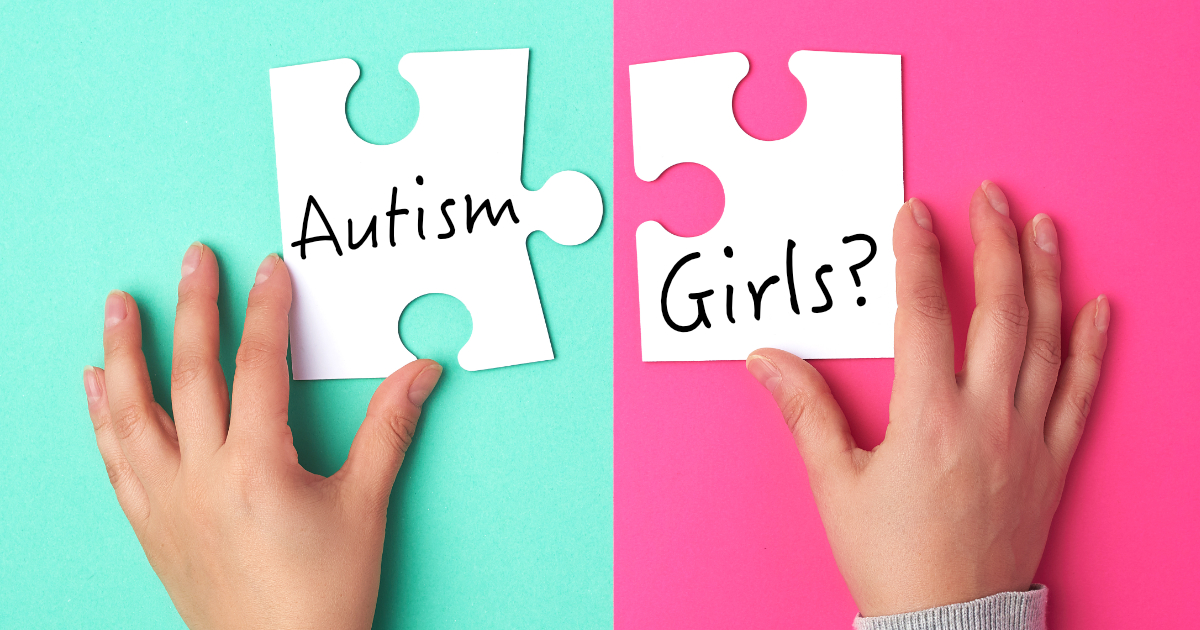Girls just don’t have autism, right?
Officially boys outnumber girls with autism (ASD) by four to one.
But is that because more boys than girls have ASD? Or is it because everything we know about autism comes from studying boys?
There isn’t one clear answer to those questions.
But researchers are finding out more and more about girls with ASD. So let’s address some of those myths, misunderstandings and facts.
(If you'd like more information, here's our explanation of the difference between autism, ASD and ASC).
FACT – Many girls with autism are not diagnosed
The tools for diagnosing children with autism are biased towards male traits. Boys are referred to medical professionals far more often due to behaviour regulation problems, both at home and at school.
In fact, teachers are much less likely to voice concerns about possible ASC in girls. This could be because girls on the autistic spectrum don’t challenge them as much as boys do.
And parent concerns are quite often dismissed by school - often because girls are more likely to present symptoms at home, rather than in the classroom.
If a girl does get a diagnosis of ASC, they'll often have already been diagnosed with:
- Mental health issues
- OCD
- Eating disorders
- Personality disorders
- Selective mutism
- Anxiety and depression.
Imagine having a condition which affects so many aspects of your life - but professionals don’t recognise it.
This lack of diagnosis and awareness of ASC makes girls very vulnerable. They're more susceptible to exploitation, abuse, drug addition and sexual predators.
MISCONCEPTION – girls just have ‘mild’ autism
Girls often appear to be very good at 'masking' their autism.
They're less likely to have public meltdowns, talk too loudly or say something that is socially unacceptable. They can often mimic the behaviours of others in order to fit in.
This can be exhausting.
Imagine always watching others, learning phrases to say, trying to fit in - or to read social signs and signals.
And this is why parents quite often raise concerns before school does. Their child holds it together during the school day but then has a huge meltdown when they return home.
Autism is a life-long neurological condition. It may present differently in girls... but it doesn't mean they're not affected just as much as boys.
MYTH – girls with autism appear like all other girls
This is not true... but how might girls with autism present at school?
What symptoms can we look out for?
All children are individuals and girls on the autistic spectrum are no different.
However, there are some common characteristics of girls with autism to look out for:
- Often quiet, shy and passive
- Often well-behaved, polite and compliant
- Thrives on structure, order and routine
- May have one or two friends – often 'mothered' at primary, bullied at secondary
- Socially naïve
- Special interests are often seen as appropriate i.e. animals, celebrities, reading
- Will hide and internalise problems
So what can I do to help a girl with autism that I teach?
Remember girls with ASC often have 'spiky' profiles. They'll have significant strengths as well as significant challenges.
If you're working with a girl who has a diagnosis of autism, here are 4 key ways of giving them support:
- Support girls to recognise and value their strengths
- Deal with bullying and teasing straight away
- Don’t dismiss worries and anxieties
- See beneath the mask!
Key takeaways
Girls can have autism too - but it doesn't always look like autism in boys.
The key things to remember are:
- Many girls have ASC but aren't diagnosed until they're much older. Instead they're diagnosed with a range of mental health issues or learning difficulties
- Girls can be expert ‘maskers’ so their autism can remain hidden – make sure you try to see beneath the mask
- Girls with ASC will need support recognising their strengths - and strategies to deal with their anxiety

